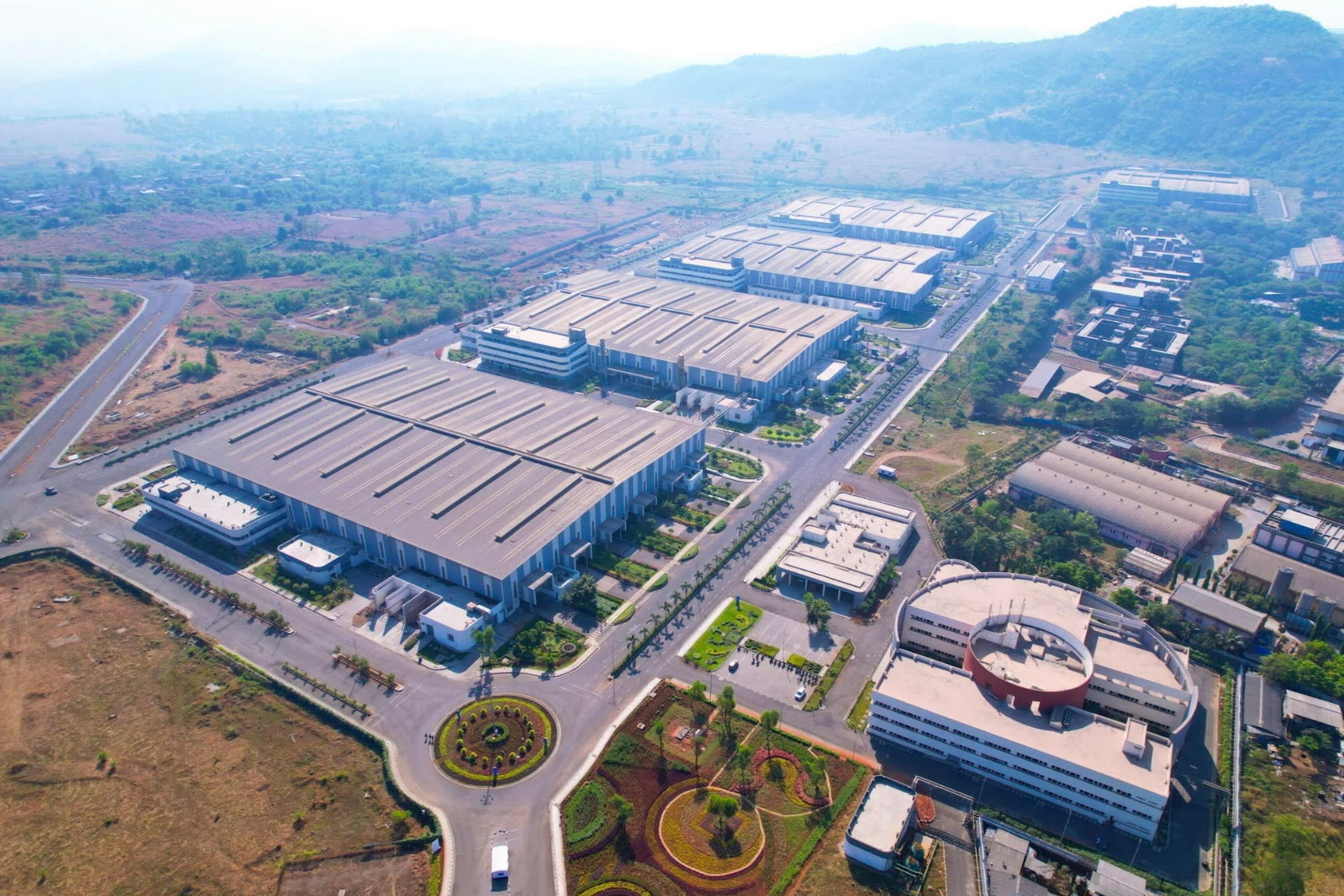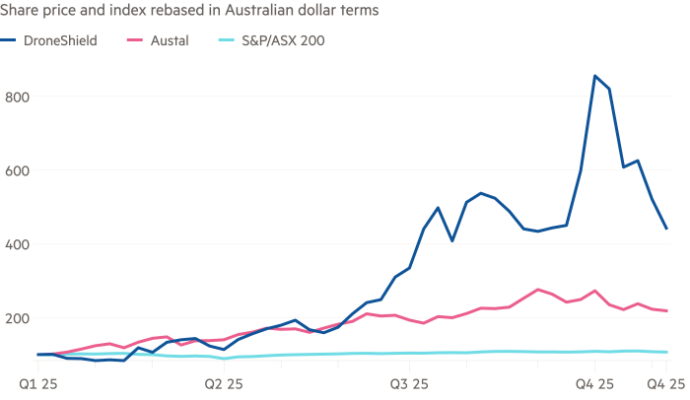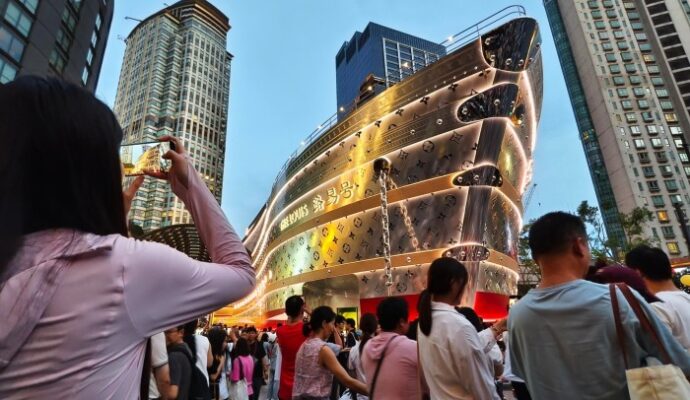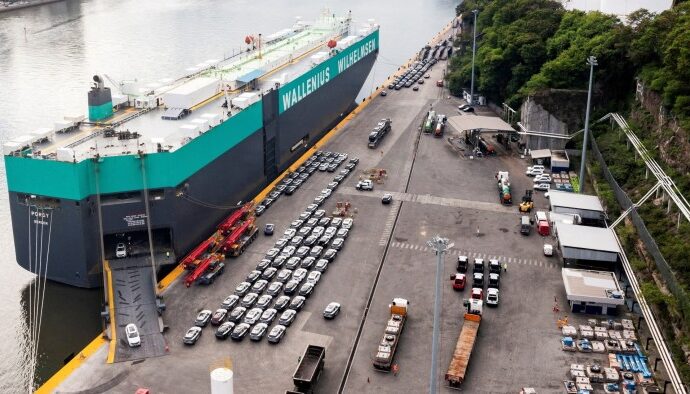Jamshyd Godrej has big plans for Mumbai — if only he could get through the country’s red tape.
For years, the 76-year-old who heads one of India’s oldest conglomerates has been on a mission to transform its vast factory complex in the city. By moving production to an industrial park outside Mumbai, Godrej Enterprises Group will free up valuable real estate and expand its capacity to make everything from safes to components for India’s space programme.
But in an interview in the now semi-repurposed complex on Mumbai’s eastern flank, which houses offices for the likes of Accenture, the third-generation leader made clear his frustration at how difficult it is to do business in India.
“We’ve been moving our businesses out of Bombay,” he said, referring to the city’s former name still used by many. “The problem is just getting things off the ground . . . for an Indian investor with a lot of patience that’s OK, but for a foreign investor without patience it’s very difficult.”
Just getting the land for the new $410mn manufacturing site about an hour’s drive south-east of Mumbai took a decade, Godrej grumbled.

His critique highlights the difficulties that Prime Minister Narendra Modi’s government faces in trying to position India as a serious contender in global manufacturing — competing against China and south-east Asia in supply chains being reshaped by US President Donald Trump’s tariffs.
Godrej is one of the few Indian corporate leaders — many of whom have businesses that depend on government goodwill — to complain openly about the steep barriers to investment.
He echoed recent comments by India’s chief economic adviser for governments to “get out the way” of business and deregulate further.
Many of India’s “rules and regulations were originally written at a time when there was a control mindset”, said Godrej, pointing to British and then post-independence socialist governance. “It needs a huge shift away from that.”
A five-year-old, multibillion-dollar production-linked incentive subsidy plan by the government has had mixed results, and manufacturing as a share of India’s GDP has fallen since the scheme was launched.
“Everyone would like some handout or other, but that’s not what’s going to make you competitive,” said Godrej. “What will make you competitive is the right infrastructure, the right attitude [and] timeliness of clearance.”
Godrej is relatively little known outside India compared with companies such as Tata and tycoons like Mukesh Ambani. But Godrej and his group occupy a central place in Indian corporate life.
The conglomerate was founded in 1897 by Ardeshir Godrej, a Parsee entrepreneur who made locks. Later, the company made ballot boxes for India’s first post-independence elections in 1951-52.
Today, it manufactures household wares, including microwaves, washing machines and alarm systems, while the new factory is set to expand capacity in areas such as precision engineering, security and aerospace.
Godrej and his sister, Smita Godrej Crishna, are together worth an estimated $11.1bn through their control of one wing of the family’s business, according to Forbes.
Jamshyd’s cousins Adi and Nadir head another wing, publicly listed Godrej Industries, which spans sectors including skincare, real estate and palm oil.
Many Indian business dynasties have been defined by internecine feuds. But the Godrejes last year orchestrated a rare amicable division, untangling a web of family crossholdings after spending years negotiating a separation deal.
The formal split was spurred in part by the infamous boardroom battle at Tata — another Parsee-founded conglomerate — between its late chairs Ratan Tata and Cyrus Mistry.
“That was a catalyst,” said Godrej. “It was amicable because I think we all realised soon after that big spat with Mr Tata and Cyrus that nobody gains with all that publicity.”
The deal gives both sides freedom, said Godrej, adding that he had no plans for a public listing of his side of the business soon.

Godrej admitted it had been a “quite challenging” financial year, with India’s middle class squeezed by price rises and stagnant wages since the coronavirus pandemic.
Consumer-facing businesses account for about 60 per cent of revenue at the group’s privately held flagship company, Godrej & Boyce, where post-tax profits fell 11 per cent year on year in the final quarter of 2024 as India’s economy slackened. The government forecasts GDP growth eased to 6.5 per cent in the fiscal year ending in March, down from 9.2 per cent.
Godrej believes faster reforms are critical if India is to hit Modi’s target of achieving developed nation status by 2047, marking 100 years since independence. “That requires at least 8 per cent growth — we need that reform [mindset] to be accelerated.”
His discussions with officials in Modi’s government left him with “the feeling that they are listening, they want to do something”, but ultimately they struggle because India’s states hold much of the power over reform, said Godrej.
India Business Briefing
The Indian professional’s must-read on business and policy in the world’s fastest-growing big economy. Sign up for the newsletter here
The company’s Mumbai property has been entangled in multiple court battles, including a decades-long ownership dispute with the state government of Maharashtra, and a compensation tussle tied to a planned Japanese-funded bullet train project through their land.
“There was a time when nobody wanted to be in this area,” said Godrej, whose family bought the land in the 1940s and who pointed to the disputes as an example of how India’s backlogged courts and prolonged litigation strangled investment.
The family’s ambition to transition its vast holdings into residential and commercial developments mirrors Mumbai’s broader transformation as former industrial facilities make way for white-collar business districts, restaurants and bars.
“The western part of Bombay got developed initially,” Godrej said. “It will still take a little time for the eastern part of Bombay to be a big residential centre. But I think if we get a mixed use of residential, commercial, retail, all this together, I think it will become an interesting place.”


